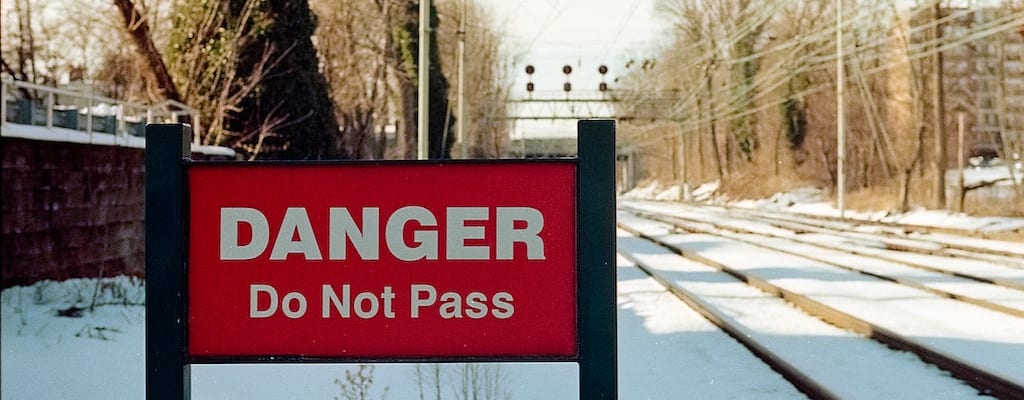widow-maker: Idiom Meaning and Origin
What does ‘widow-maker’ mean?
The idiom "widow-maker" refers to something that is extremely dangerous or life-threatening, particularly in a physical or occupational context. It is often used to describe hazards or tasks that have the potential to cause death, especially in male-dominated industries like logging or construction.

Idiom Explorer
The idiom "wide berth" means to keep a safe distance or to avoid getting involved with someone or something. It suggests being cautious and not taking any risks.
The idiom "wicked tongue" refers to someone who has a sharp or hurtful way of speaking, often intentionally using their words to criticize or hurt others.
The idiom "wet firecracker" typically refers to someone or something that fails to live up to expectations, lacks enthusiasm or excitement, and ultimately disappoints, similar to a firecracker that fails to ignite after getting wet.
The idiom "weigh down" means to burden or make someone feel heavy with worry, responsibility, or sadness.
The idiom "wear too many hats" means to take on multiple roles or responsibilities, often to an excessive or overwhelming extent, resulting in a lack of focus or effectiveness. It suggests a person taking on more tasks than they can effectively handle.
The idiom "weaker vessel" is used to refer to women, particularly in a derogatory or patronizing way, implying that they are weaker or more fragile than men.
The idiom "watery grave" refers to a person dying by drowning in water. It is often used to symbolize a tragic death at sea or in any body of water.
Watery grave is an idiom that evokes a vivid image of death by drowning. It is often used metaphorically to refer to a tragic or unfortunate end. The idiom is believed to have originated from the association of water with danger and death. Throughout history, drowning has been a common cause of accidental deaths.
The idiom "watch out" means to be careful or vigilant, usually in order to avoid danger or potential harm. It is often used as a warning to someone to pay attention to their surroundings and be cautious.
A Deadly Legacy
The colloquial expression "widow-maker" originated in the United States and is commonly used to refer to a dangerous or potentially deadly object, situation, or activity. It is often associated with manual labor, particularly in the logging and construction industries. The primary derivation of this idiom comes from the belief that certain trees or tree limbs pose a high likelihood of causing fatal accidents to workers. These trees are known as "widow-makers" and are regarded as significant hazards in the logging industry, with the potential to cause fatal injuries to loggers.
The idiom "widow-maker" is also used to describe tools or equipment that are considered especially dangerous. This applies to situations beyond manual labor where there is a clear and imminent risk to human life. Any object or activity that can potentially cause fatal accidents may be referred to as a "widow-maker".
Throughout American culture, this idiom has been extensively used in literature, film, and other forms of popular media. Its usage reflects the widespread recognition and understanding of its meaning. In works of fiction, the depiction of a "widow-maker" effectively raises tension and adds a significant sense of danger to narratives. This metaphorical expression highlights the inherent danger and potential loss associated with the situations it describes. The emotional impact of the term "widow-maker" reinforces the severity and seriousness of these situations.
Related idiom: "professional suicide"
The idiom "professional suicide" is used to describe actions or decisions that can have detrimental effects on one's career or professional reputation. Just as a "widow-maker" can be a dangerous object or situation, engaging in "professional suicide" can have serious consequences for one's livelihood. It's important to avoid actions that could potentially harm one's professional standing or future prospects.
Related idiom: "meet one's maker"
The idiom "meet one's maker" is often used euphemistically to refer to death. Just as encountering a "widow-maker" can lead to fatal accidents, the phrase "meet one's maker" suggests the end of life and the transition to the afterlife. While the origin of the phrase is uncertain, it is commonly understood to mean facing death and the judgment that follows.
Related idiom: "dead meat"
The idiom "dead meat" is used to describe a person who is in serious trouble or facing imminent danger. Similar to encountering a "widow-maker," being referred to as "dead meat" suggests that the person is in a perilous situation with potentially dire consequences. It conveys a sense of vulnerability and helplessness. It's imperative to avoid becoming "dead meat" by staying away from hazardous situations or taking necessary precautions to ensure safety.
Related idiom: "valley of death"
The idiom "valley of death" is often used to describe a dangerous or life-threatening situation. Just as facing a "widow-maker" can be perilous, entering the "valley of death" implies undergoing a turbulent and potentially deadly experience. This phrase is often used metaphorically to convey the gravity of a dangerous situation, emphasizing the risks involved and the need for caution. It's essential to be aware of potential dangers and take appropriate measures to avoid finding oneself in the "valley of death."
To summarize, the idiom "widow-maker" refers to dangerous objects, activities, or situations that have the potential to cause fatal accidents. Its origins in the logging industry and its usage in various forms of media reflect its widespread recognition. The emotional weight carried by this idiom adds to its impact, effectively conveying the potential loss and devastation associated with the situations it describes. Additionally, related idioms such as "professional suicide," "meet one's maker," "dead meat," and "valley of death" reflect similar themes of danger, loss, and potential harm in various contexts. It's crucial to exercise caution and make informed decisions to avoid encountering a "widow-maker" or finding oneself in any perilous situation.
Example usage
Examples of how the idiom widow-maker can be used in a sentence:
- 1. The old tree in our backyard is a dangerous widow-maker, and we need to have it removed before it falls on someone.
- 2. Working on a construction site without a hard hat is like playing with widow-makers; it's extremely unsafe.
- 3. Climbing up the steep mountain trail during a thunderstorm is a widow-maker, as the chance of being struck by lightning is high.
More "Danger" idioms

